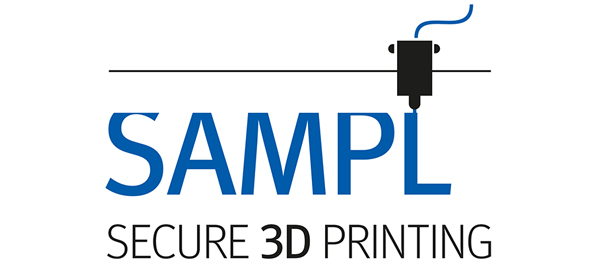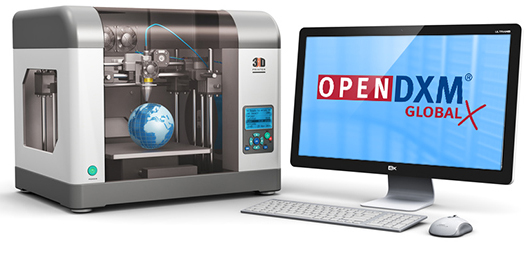
|

PROSTEP integrates OpenDXM GlobalX and blockchainBy Martin Holland 3D printers allow components to be produced quickly. These can be prototypes or spare parts for example. However, steps must be taken to ensure that the correct data is printed and it cannot be copied any number of times. PROSTEP is therefore developing a secure additive manufacturing platform (SAMPL) together with different partners using the same blockchain technology used for Bitcoin. These development activities are part of the PAiCE funding program. 
3D printing has the potential to revolutionize value-added chains such as spare parts management, for example, and is therefore referred to as a disruptive technology. But it also raises a number of security and copyright-related issues. When it comes to the globally distributed manufacture of potentially security-critical components, how can it be guaranteed that only authorized persons have access to the data, that only the original data is printed and that this data will not be misused to manufacture pirate copies following its authorized use? If it is to be possible to distinguish between authorized copies and pirate copies, the 3D models will have to be licensed in much the same way as software programs and digital media. Digital rights management will thus become a key technology for the commercial exploitation of 3D printing. The aim of the SAMPL project coordinated by PROSTEP is the development of an end-to-end security solution – also referred to as a chain of trust – for additive manufacturing. This involves examining the entire process from creating the digital 3D print data to exchanging the data with 3D print service providers and their trusted 3D printers, which are safeguarded using special secure elements, right through to tagging the printed components with RFID chips. In addition to existing mechanisms for encrypting 3D data, it is intended that a digital license management facility based on blockchain technology be integrated in the data exchange solution OpenDXM GlobalX. The Industrial IoT standard OPC-UA will be used as the interface for exchanging certification and license data between the rights holder and the recipients. 
Up until now, blockchain was best known from the world of finance. It is a cryptographic method used to verify the authenticity of digital payment transactions. A concrete blockchain application is the cryptocurrency Bitcoin, for example. When a transaction is performed, bitcoins are sent from a digital wallet to the wider Bitcoin network together with the recipient's encrypted address. There bitcoin miners verify the transaction and place it in the blockchain as a new block. To put it simply: verification is complete when more than 50% of the miners have confirmed the transaction. A good explanation of this methodology can be found at https://www.btc-echo.de/wie-funktioniert-eine-bitcoin-transaktion/ Blockchain technology can in principle also be used for mapping transactions such as issuing licenses. In this case, instead of bitcoins, a person receives a license to print a component a specified number of times. 
PROSTEP expects the implementation of this technology in OpenDXM GlobalX to open up new markets in the field of additive manufacturing and other area of application in which the authenticity of product data and licenses has to be ensured. OpenDXM GlobalX is being made blockchain ready and using it to exchange 3D print data would be one of the first engineering-specific use cases. SAMPL is leading the way in this respect. The consortium project, which is scheduled to run for three years, is being sponsored by the German Federal Ministry for Economic Affairs and Energy (BMWi) within the framework of the Digital Technologies for Business ((PAiCE – Platforms, Additive Manufacturing, Imaging, Communication, Engineering) program. The total volume of the project is approximately 4.1 million euros, 2.6 million of which is federal funding. The consortium's industry partners will contribute another 1.5 million euros. The consortium comprises PROSTEP, the Hamburg-based companies NXP Semiconductors and consider it, 3D MicroPrint in Chemnitz, Hamburg University, Ulm University, Harburg Technical University, the Frauhofer Institute ENAS in Chemnitz and the associated partner Airbus. The aircraft manufacturer Airbus will specify the requirements, evaluate the business processes together with the other partners and provide the additive manufacturing use cases. Implementation will be performed primarily by the industry partners, with PROSTEP developing the SAMPL platform using GlobalX. NXP will be responsible for developing the secure elements for the 3D printers and the RFID chips for this application. The basic blockchain implementation will be performed by the company consider it. The university partners will develop the security and blockchain architecture and will work on integrating the project results into teaching in particular. |
|
| © PROSTEP AG | ALL RIGHTS RESERVED | IMPRESSUM | DATENSCHUTZERKLÄRUNG | HIER KÖNNEN SIE DEN NEWSLETTER ABBESTELLEN. |
